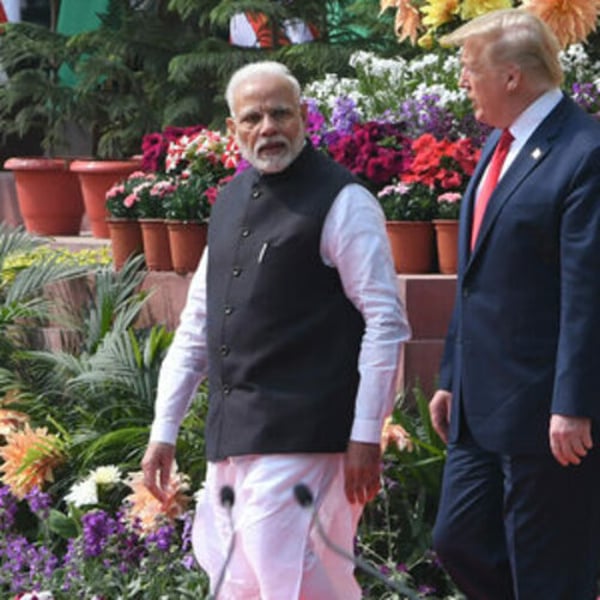Translated by
Nicola Mira
Published
May 16, 2024
China is “cheating” and “we will not let it flood our market,” US President Joe Biden said on May 14, justifying a quadrupling of customs duties on Chinese electric vehicles, imposed alongside tariff increases on other products. . Among them, a wide range of textile and clothing products, a cause of concern for the American Apparel & Footwear Association (AAFA).
“The decision to expand Section 301 tariffs to a wide range of apparel, footwear, accessories and textiles, while not unexpected, is a real blow to both American consumers and manufacturers,” said Steve Lamar, executive director of AAFA. “Tariffs are regressive taxes paid by American importers and manufacturers and ultimately passed on to American consumers. At a time when American working families are struggling with inflation, continued tariffs on consumer needs are downright distasteful,” he added.
According to AAFA, the decision is even more unjustified given that the Biden administration would have admitted that the same tariff policy failed to produce the desired effects in recent years. In 2019, the United States government reduced customs duties on imports of textiles and clothing from China from 15% to 7.5%. A policy change that appears to have caused only a minor slowdown for some categories of imports while others have prospered, ultimately prompting the Biden administration to back down.
“Ending this relief rather than making it permanent places manufacturers and their workers at a significant disadvantage and adds further inflationary pressures,” said Nate Herman, AAFA senior vice president of policy. According to AAFA, the decision was motivated by the US government's failure to negotiate a new trade agreement with China. A situation that “underscores the lack of an effective trade policy agenda by the Biden administration,” said Beth Hughes, vice president of trade and customs policy at the AAFA.
In 2022, imports of textiles and clothing to the US amounted to $132.2 billion, surpassing the figure of $127.7 billion recorded in 2019. China was by far the largest supplier country, with a value export slightly higher than 32.7 billion dollars, with a market share of 24.7%.
Economic and symbolic issue
The decision announced by Biden places economic competition with China at the center of the US presidential campaign, with special emphasis on the automobile market, which has high symbolic value in the US at election time.
“We will never let China control the market for these types of vehicles,” Biden said Tuesday in statements to reporters at the White House. He took the opportunity to criticize his Republican rival Donald Trump on this issue, with whom he will compete in the industrial states that could hold the key to the elections, such as Pennsylvania and Michigan.

The value of Schedule 4A imports from China, which include textiles and clothing, has decreased only slightly since the 7.5% tariff was introduced, according to the AAFA. US Trade Representative
It is “impossible for our automakers to compete honestly [with China]Biden said. The US president has on many occasions shown his support for the US auto industry, helping its electric transition with the Inflation Reduction Act's focus on green energy and supporting the industry union.
In a press release, the USW steelworkers union praised the White House's decision, which it considers necessary to “support domestic manufacturing and our workers.”
Trump favors tariff increases
Trump, speaking after his New York court hearing, was sarcastic about a decision he believes is entirely consistent with those he made during his time as president.
Biden “wants to set high customs duties on Chinese imports, which is exactly what I proposed. Where have you been for the last three and a half years? Trump rhetorically asked his successor.
“My predecessor did not protect the United States,” Biden responded, adding that Trump “wants to raise all customs duties, he just has no idea.”

In fact, Trump has made the widespread increase in customs duties one of the main platforms of his economic program if he is re-elected, assuring the country that he would counteract their effects on American consumers through tax cuts, financing the latter through of new sources of income. of customs duties.
“
Wrong actions,” says China
China reacted quickly. In a statement, the country's Minister of Commerce denounced a decision that “will seriously affect the climate of bilateral cooperation” and called on the United States to “immediately reconsider its wrong actions and cancel the additional tariffs imposed against China.”
Beijing expressed its strong disapproval, underlining that “the WTO indicated a long time ago” that the US tariffs “violate its rules,” but “U.S. “He continues to persist in his mistakes.”
The US government, in turn, has accused China of vigorously reinforcing its manufacturers in certain strategic sectors, granting significant subsidies that generate excess supply that is then sold at bargain prices in the global market, preventing other countries from competing. .
The US government emphasized that this concern is shared by the European Union and other countries such as Turkey, Brazil and India.
(with AFP)
Copyright © 2024 FashionNetwork.com All rights reserved.












